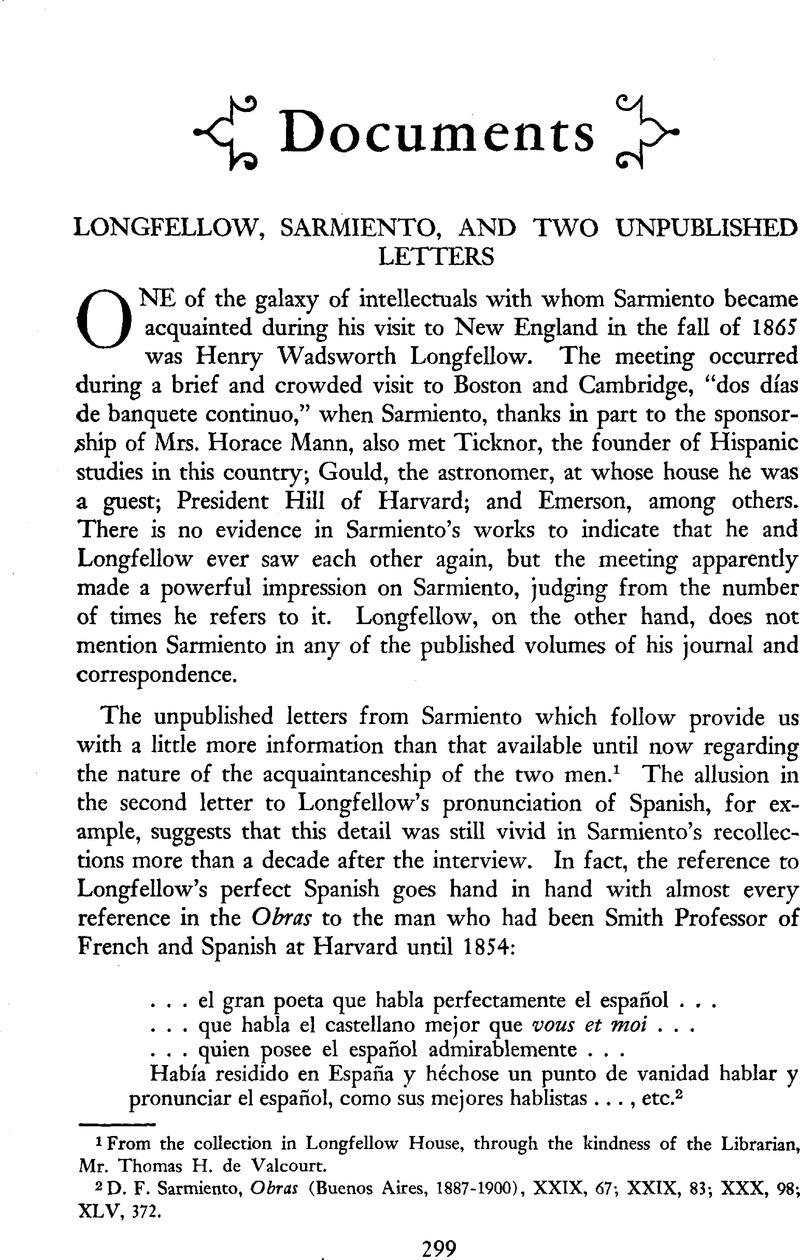No CrossRef data available.
Published online by Cambridge University Press: 11 December 2015

1 From the collection in Longfellow House, through the kindness of the Librarian, Mr. Thomas H. de Valcourt.
2 Sarmiento, D. F., Obras (Buenos Aires, 1887–1900), XXIX, 67; XXIX, 83; XXX, 98; XLV, 372.Google Scholar
3 Ibid., XXX, 98.
4 Ibid.
5 Ibid., XXX, 183–184.
6 Ibid., XLV, 372.
7 Englekirk, John E., “Notes on Longfellow in Spanish America,” Hispania, XXV (October, 1942), 308.Google Scholar
8 Except for the addition of accents, no changes have been made in the form of the letters.
9 In a letter to Mary Mann dated April 6, 1867, Sarmiento includes some of the titles which he had sent to Cambridge: La Cautiva by Echeverría, Poesías by Mármol and another volume of poetry by Rivera Indarte. See “Cartas de Sarmiento,” Boletín de la Academia Argentina de Letras, IV (1936), 322.Google Scholar
10 Longfellow replied in terms that were most complimentary to the poetess, but translated only one stanza. Sarmiento’s summary of Longfellow’s opinion, along with Longfellow’s translation, may be found in Obras, XXIX, 109.Google Scholar
11 Sarmiento apparently had some hesitation about the propriety of asking for a translation, as he confessed to Mrs. Mann five days after he first wrote to Longfellow:
“Le mandé a Mr Longfellow el único ejemplar que hube a las manos rogándole hiciese una traducción en verso, a fin de publicarla en el Atlántico Month [sic], para que fuere conocida del público aquí. No sé si esta solicitud sale de las reglas, lo que sentiría mucho.” Ibid., p. 93.
12 Pastor Servando Obligado (b. 1841), author of Los Estados Unidos, tal cual son and of Tradiciones argentinas.